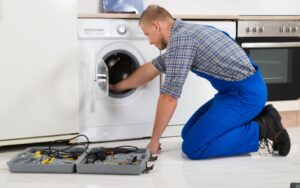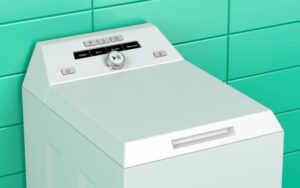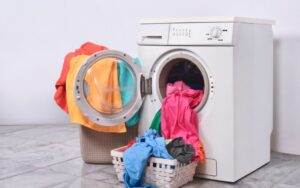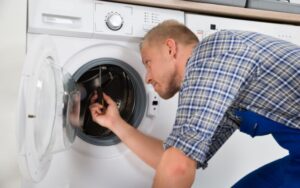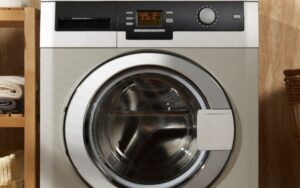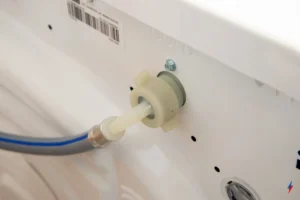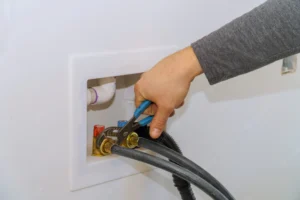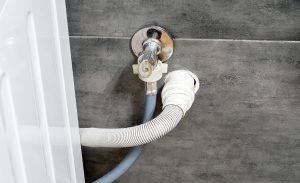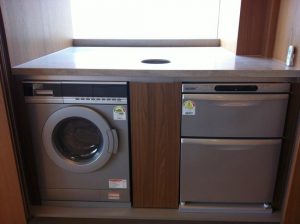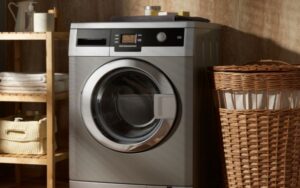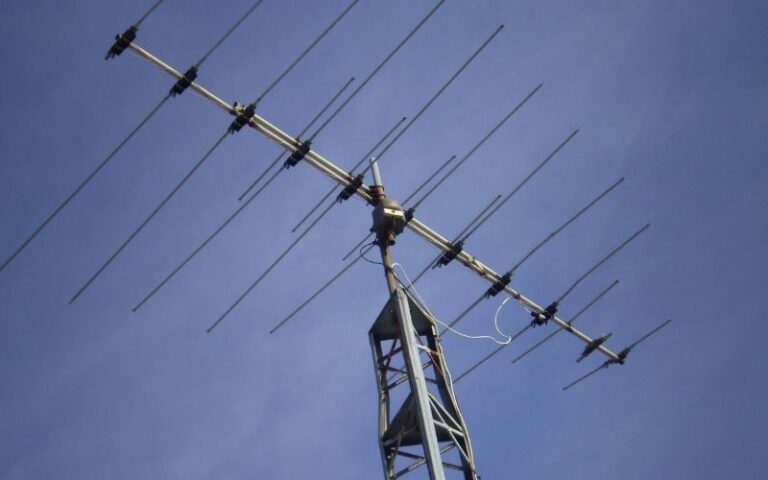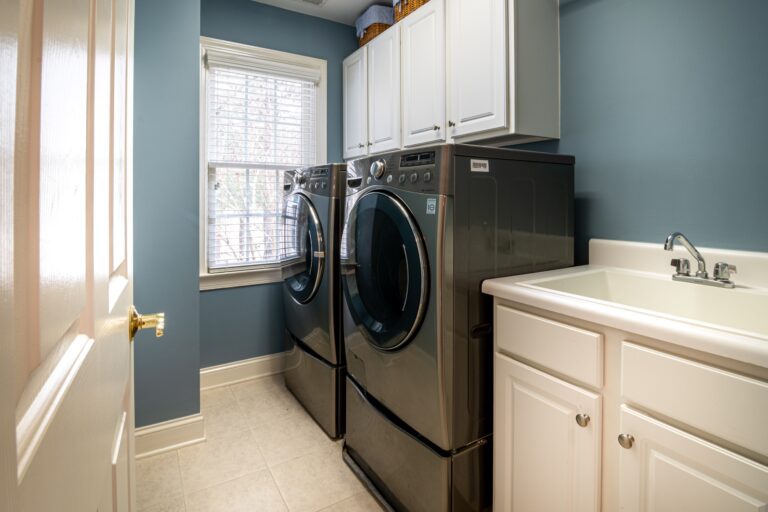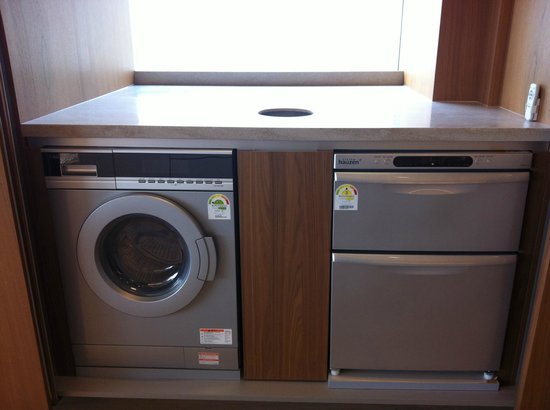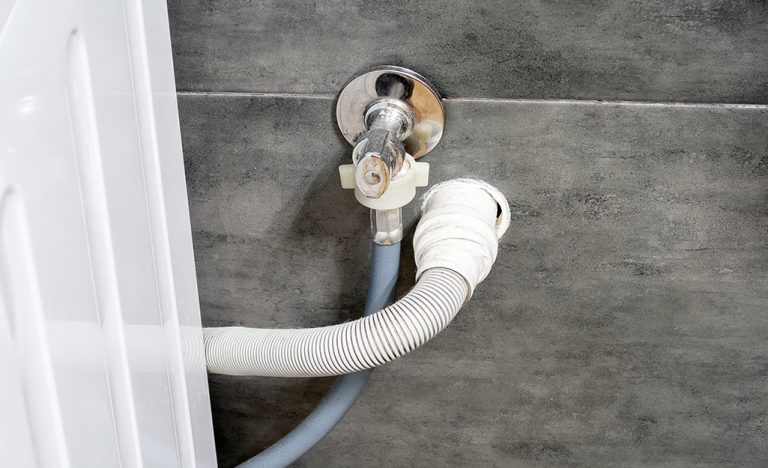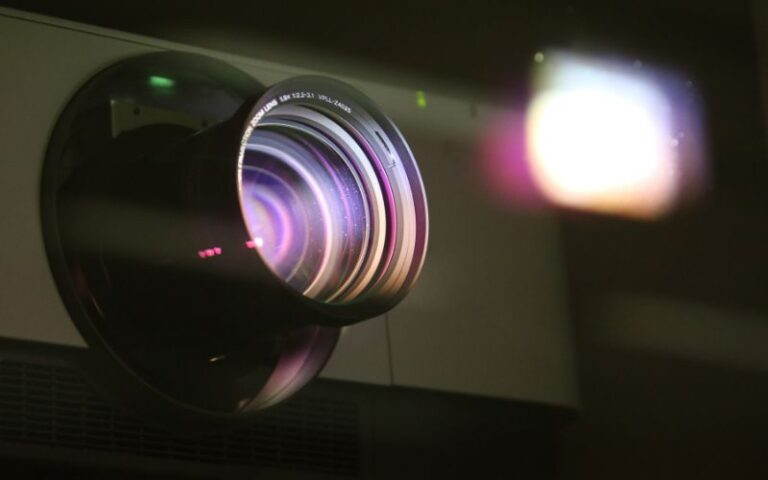Do Washing Machines Heat Their Own Water? (Explained)
Some washing machines have double hoses for hot and cold water supply. Nevertheless, others only have a single hose for cold water supply.
It can be problematic for a single-hosed washing machine if your washer requires hot water. Thus, you may wonder whether washing machines heat their water.
Let’s find out.
Some washing machines heat their water with the help of an inbuilt heating element. Most of the washers, including those with a single hose and those with a double hose, can heat their own water. Such washers have a high-temperature cycle of about 194°F.
In this article, you will discover whether your washing machine heats its water or requires water from a boiler. You’ll also know whether your washing machine runs on cold water.
Do All Washing Machines Heat Their Own Water?
Not all washing machines heat their water, even though many come with just one hose for cold water.
However, the fact that most washing machines only have cold water feed doesn’t rule out that there are other washing machines with double hoses.
In truth, washing machines with only one hose for cold water can most likely heat their own water. However, those with double hoses source hot water from the home heater or boiler.
More so, whether or not washing machines heat their own water may largely depend on the type of your machine.
Below is a highlight of what you should expect from your washer, depending on its type;
#1. Older Washing Machines
Older washing machines most likely possess two hoses that permit hot and cold water supply.
However, such machines are not eco-friendly and are limited in circulation, especially in the USA.
You can find washers with double hoses in European countries. Only a few are available in stores in the United States.
If you have an older machine, please check the booklet that came with the machine. In any case, if you can’t see the booklet, then you can check online.
If, either way, the information online does not satisfy you, you’ll have to do the trick manually.
Here’s how to do it:
- Pull out the machine for a clearer view, and inspect the connectors on the back.
- Check for a red and blue pipe.
Older washing machines have red and blue pipes, which indicate the machine takes water from the hot and cold supply. The blue is for cold, and the red is for hot.
However, older machines seem clumsy, occupying more space than they should. It’s no magic to choose the newer machines over the older ones.
#2. Newer Washing Machines
Most modern washing machines come with a sleek design and are eco-friendly.
The newer washing machines come with a single hose, which only uses a cold water supply. This technique raises questions about where they source their hot water.
Fortunately, the machine’s build-up features a heating element that helps it to heat its own water. The newer washing machines save time and space.
If you were to use your water heating system, it would cost you more money. Aside from modern washers with a single hose, some washing machines with double hoses also have a heating element.
Regardless of the age and type, many other newer washing machines do not have a heating element. They use the home’s heating system or steam boiler connected to the washer.
Do Washing Machines Use Water From The Boiler?
Washing machines also use water from the boiler. Some people even think washing machines cannot do without a boiler.
A washing machine needs a considerable volume of hot water. And the steam boiler heats the water used in the washing machine.
The washing machines with boilers attached to them have double hoses that draw hot water from the mains. Thus a boiler supplies the hot water through the available setup.
The more the load in the washing machine, the more steam the machine requires.
Following the need for hot water in laundry services, it may be necessary to use an efficient boiler. Boilers are a preferred source of hot water in a commercial setting.
The boiler does more work than your home heater would do. The heater may not provide high steam as the boiler does in an hour.
Without mentioning it, it’s crystal clear that for any laundry service company to thrive, it will need an efficient boiler. Good boilers help boost productivity in laundry operations.
After careful research, I recommend Miura’s boilers. The boilers are devices to reckon with due to their wonderful performances and efficiency.
However, you can also use a washing machine without a boiler, but there will be minimal risks. Although once you take appropriate precautions and modify your washer’s setup accurately, there should be no worries.
Some reliable washing machine brands that do not require a boiler include the following: Maytag, LG, Whirlpool, and Samsung.
How Do You Know If Your Washing Machine Heats Its Own Water?
Checking whether your washing machine heats its water slightly depends on the machine type. Is your washing machine a modern one or an older type?
If your washing machine is new, fortunately, most modern washers come with a single hose. This feature implies that there must be a heating element inbuilt.
You can know whether your washing machine heats its water by mere inspection. The heating element is sometimes located on the back of the main drum, where you can see and feel it.
You can find it there, behind the back panel. However, you can more commonly find the heating element in front of the main outer drum.
It is right under the door seal. The heating element is accessible, making it easy to replace when faulty.
Do Washing Machines Need Hot Water?
Washing machines need hot water. The value of hot water to a washing machine can not be overemphasized.
It is this need for hot water that necessitates the presence of heating elements in washing machines.
Hot water helps loosen and remove dirt from clothes; it would be difficult for a washing machine to wash clothes clean without hot water.
With hot water, the washer works effectively and satisfactorily. Washing machines may not provide the services we desire without hot water.
Nevertheless, you could properly clean without running on hot water even though you may be trusting chances.
Can A Washing Machine Run On Cold Water?
Yes, a washing machine can run perfectly on cold water without any challenges. Cold water does not affect the machine in any significant way.
However, if we don’t wave off the technicalities, there are slim chances that your machine can run satisfactorily on cold water.
However, this does not mean that washing machines on cold water are detrimental to your machine.
If you do not have hot water in the machine, its performance will greatly reduce. Hot water helps remove the dirt in your clothes properly, which is the main aim of washing.
Thus, it is not reasonable to run a washing machine on cold water knowing it may not wash your clothes to satisfaction. Cold water largely affects your washing quality and may also cost you time.
All conditions have advantages and disadvantages. It’s a matter of choice to run a washing machine on cold, warm, or hot water. What matters is your area of interest.
In truth, hot water may cause subtle changes to your clothes. However, stick to running your washing machine on hot water when washing your clothes.
There’s always been a debate about whether to use cold water, warm water, or hot water to run your washing machine. Where should you stand?
The table below answers best, providing you with the effects of all water conditions on your clothes
| Cold Water | Warm Water | Hot Water |
|---|---|---|
| Best for delicate fabrics e.g. lace and silk | Best for knits and synthetic fabrics | Loosens and removes dirt from clothes |
| Prevents cloth fading | Inhibits germ activity on clothes | Kills germs on clothes |
| Does not shrink clothes | Works fine with detergents | Produces better foam for washing |
| Reduces cloth wrinkles | Useful for all clothes | Saves time |
| Retains cloth quality | Retains clothe quality | Makes clothes dry faster |
You May Like To Read
- Can You Use A Studor Vent On A Washing Machine?
- Can You Use A Washing Machine Without A Boiler?
- Can I Use A Washing Machine Without Running The Water?
- Can A Washing Machine Get Rained On? (5 Steps To Protect)
- 5 Reasons Your Whirlpool Washer Stuck On Sensing Or Wash Cycle!
- 4 Reasons Your Lights Flicker When Washer is On!


